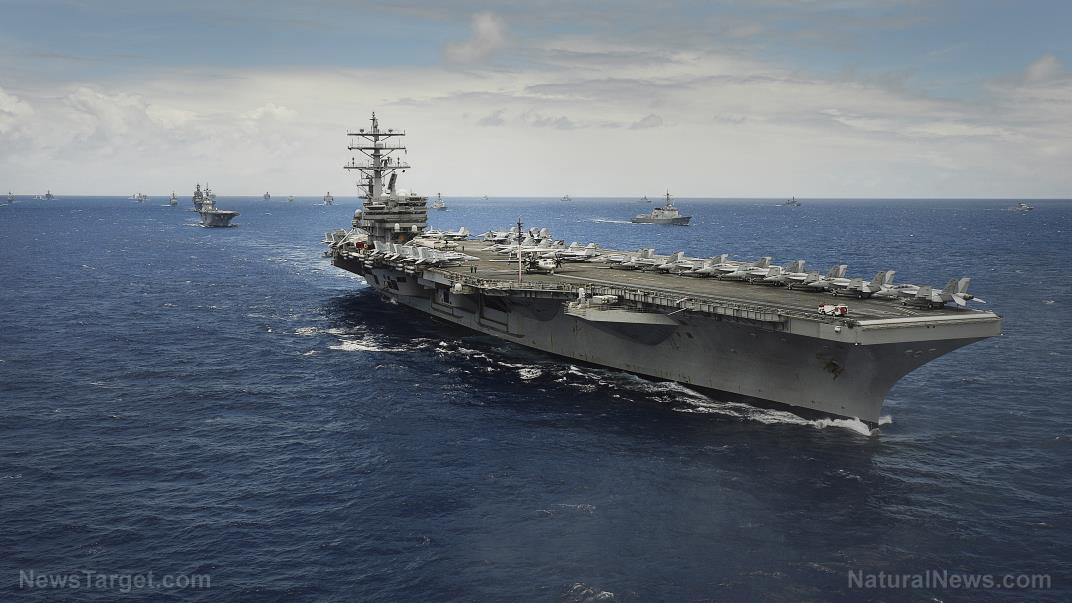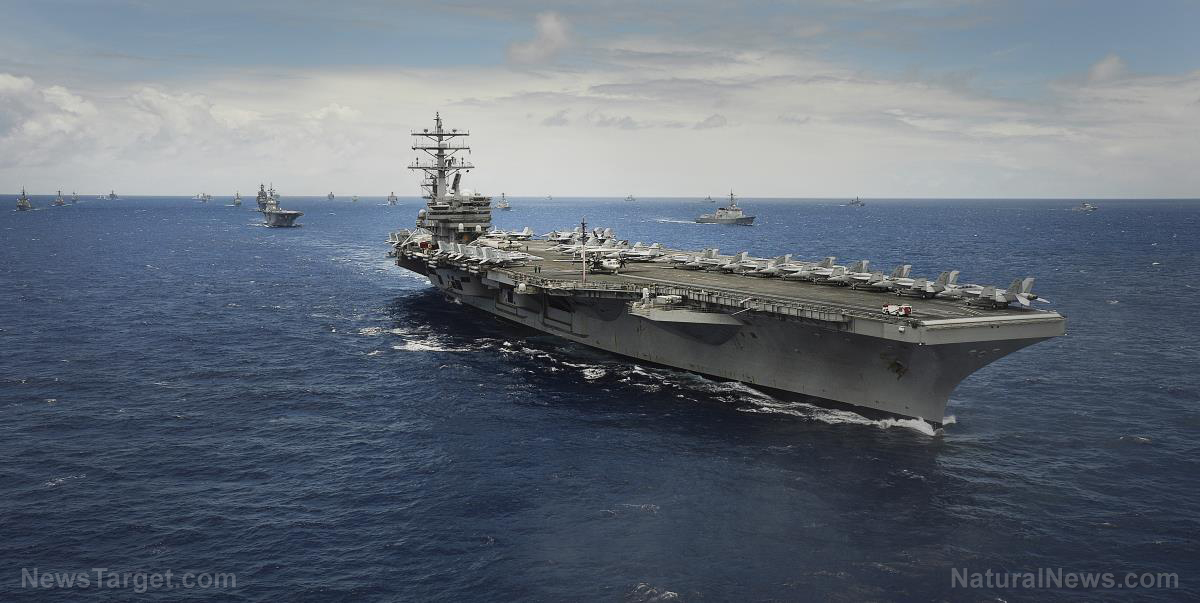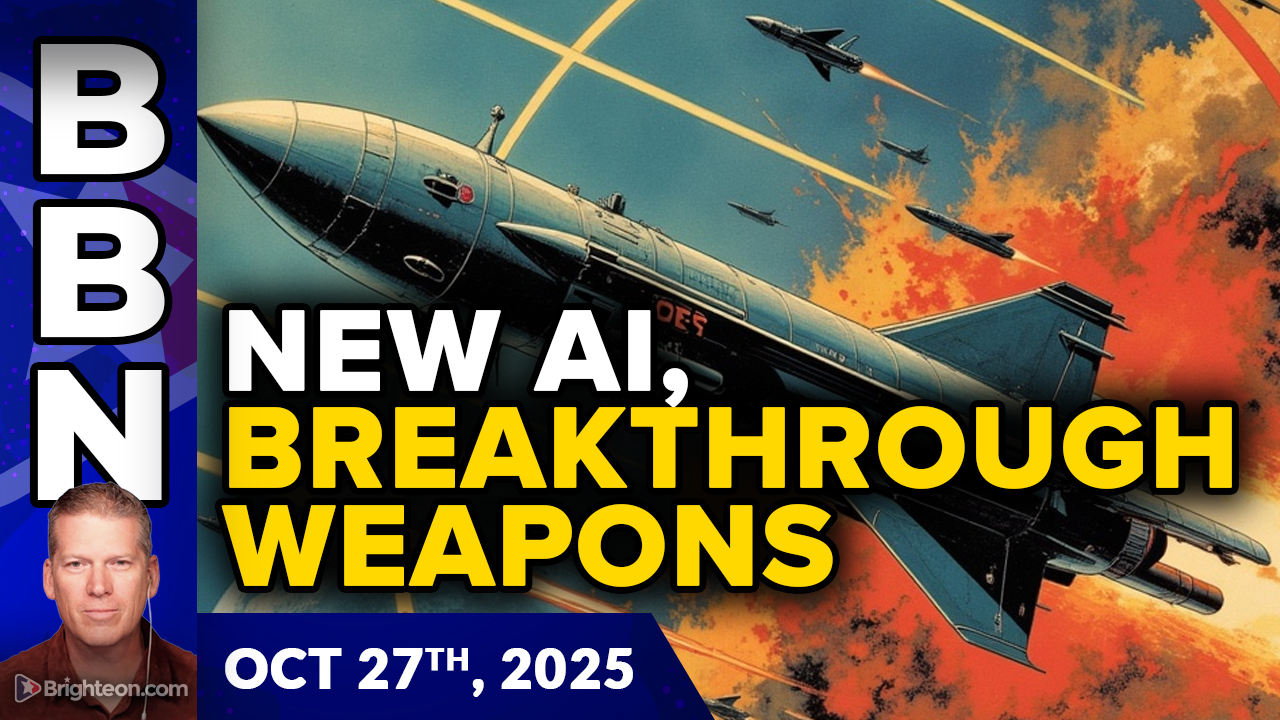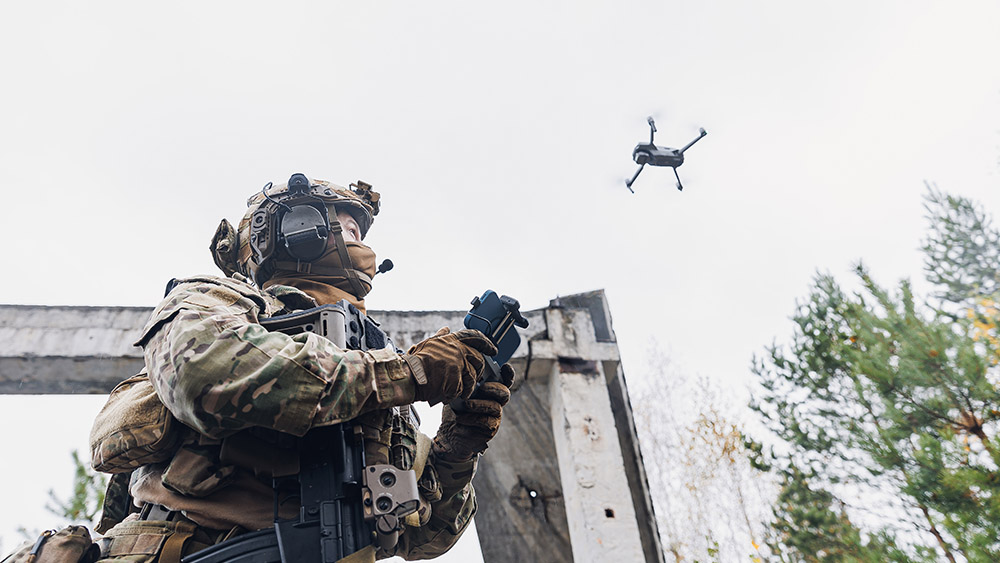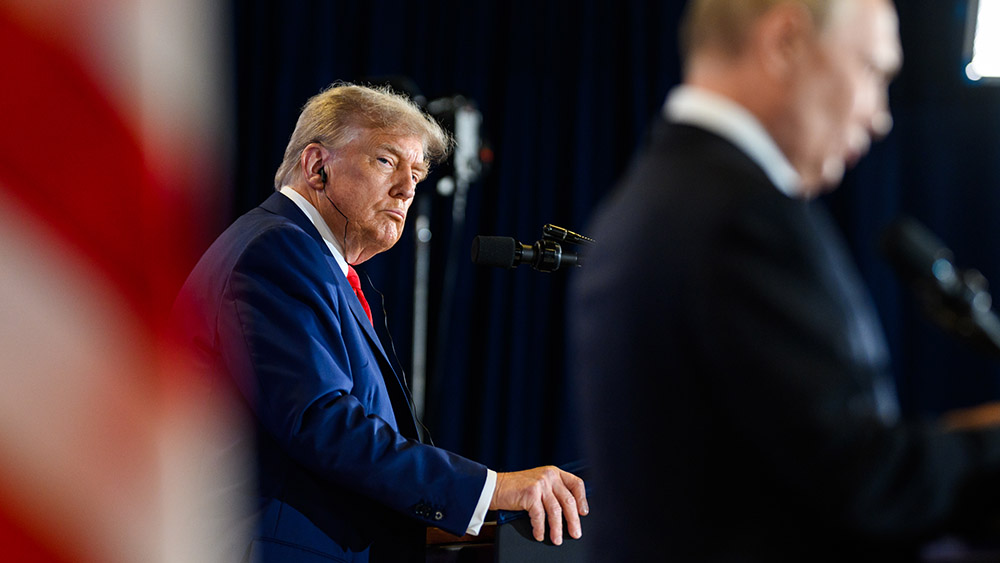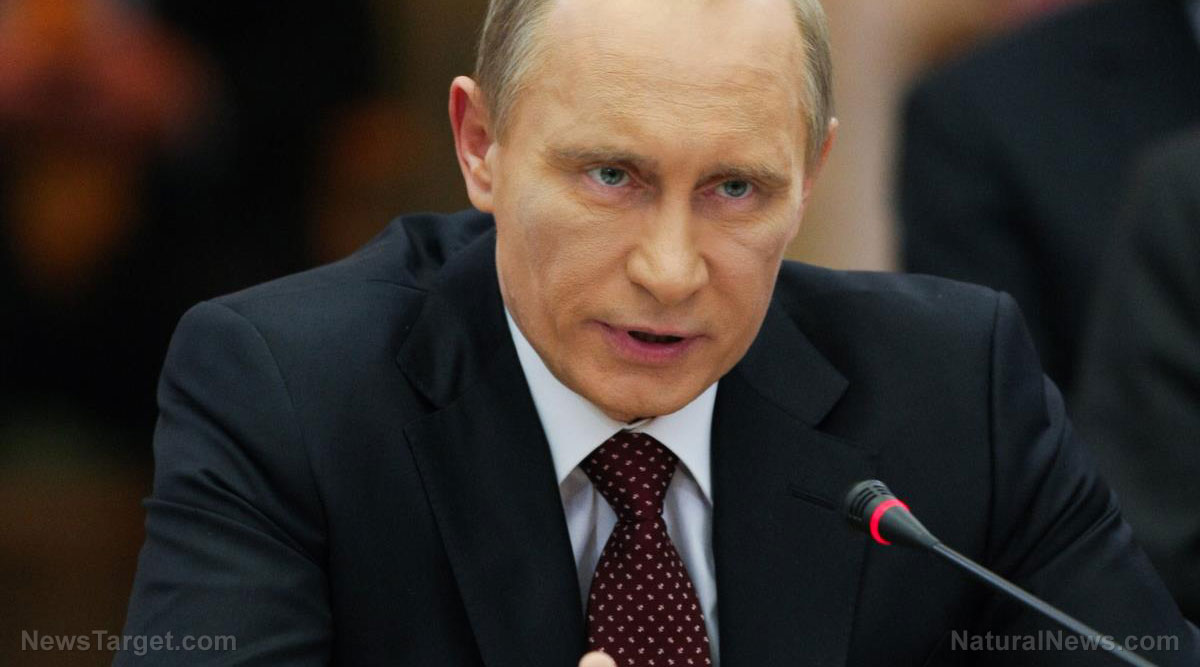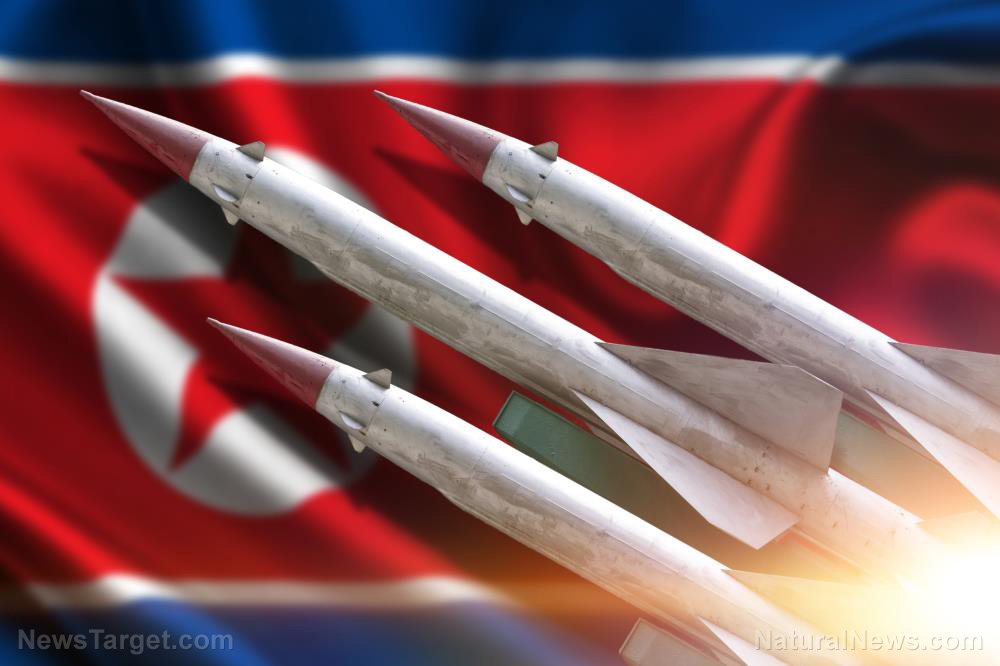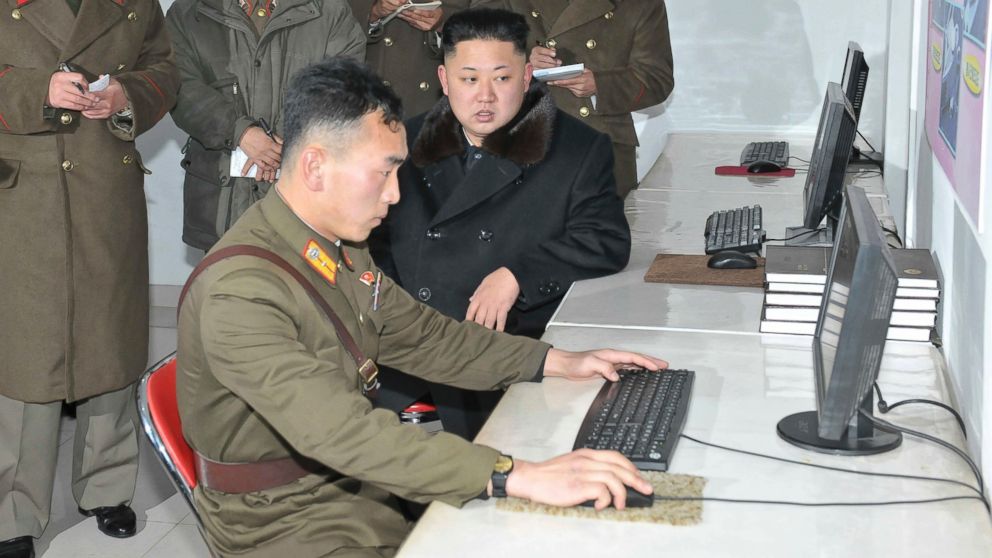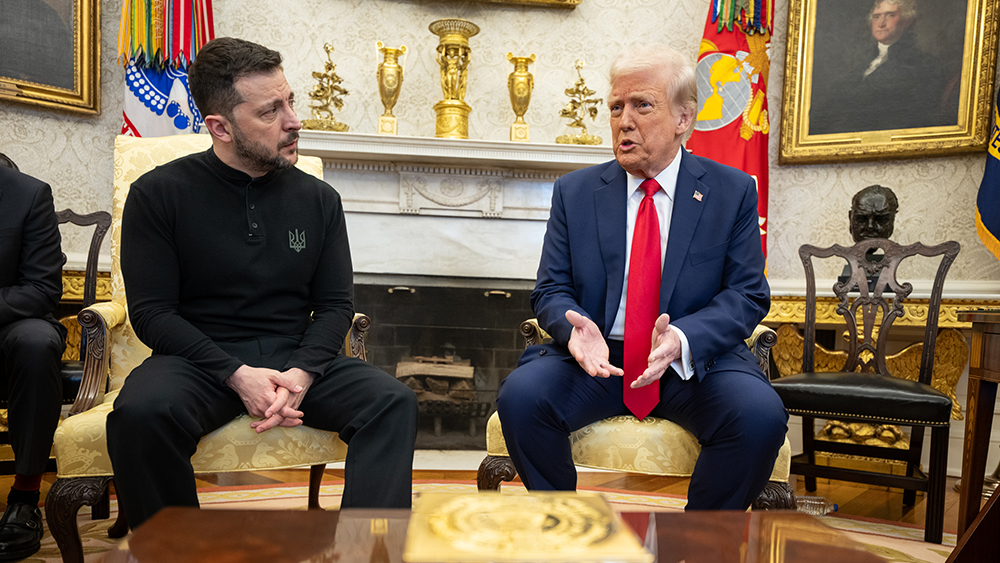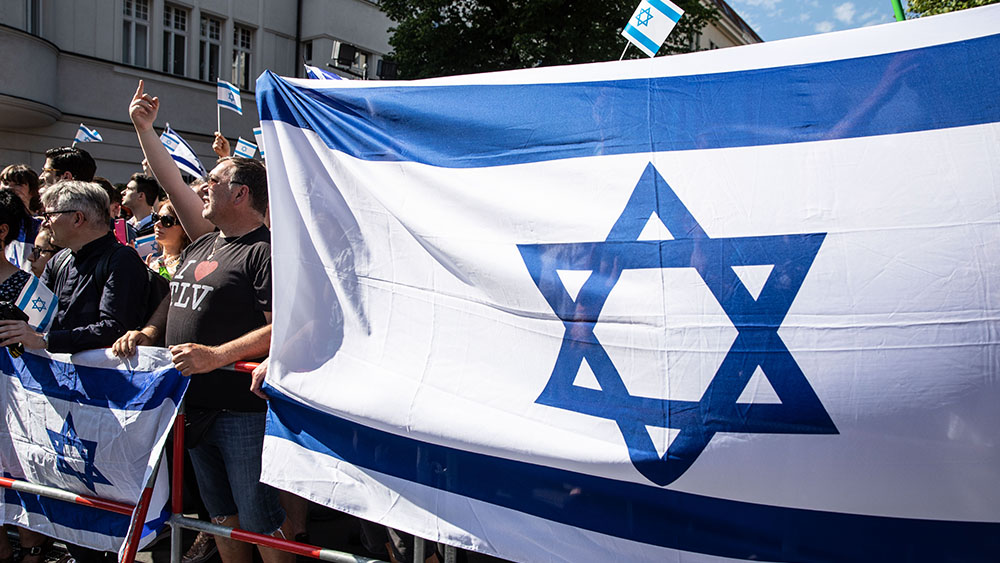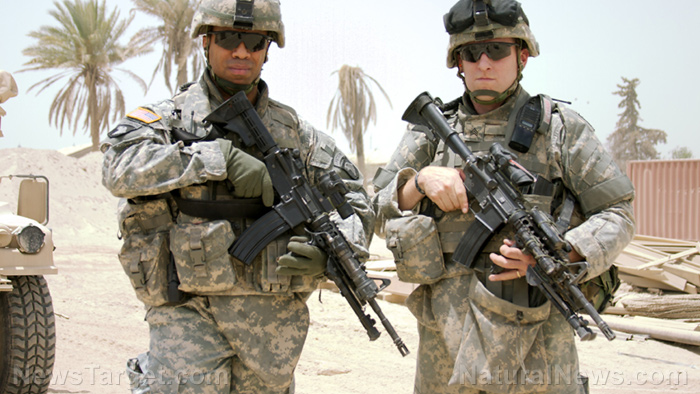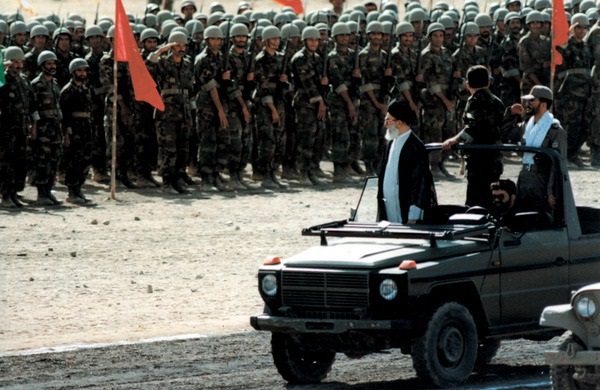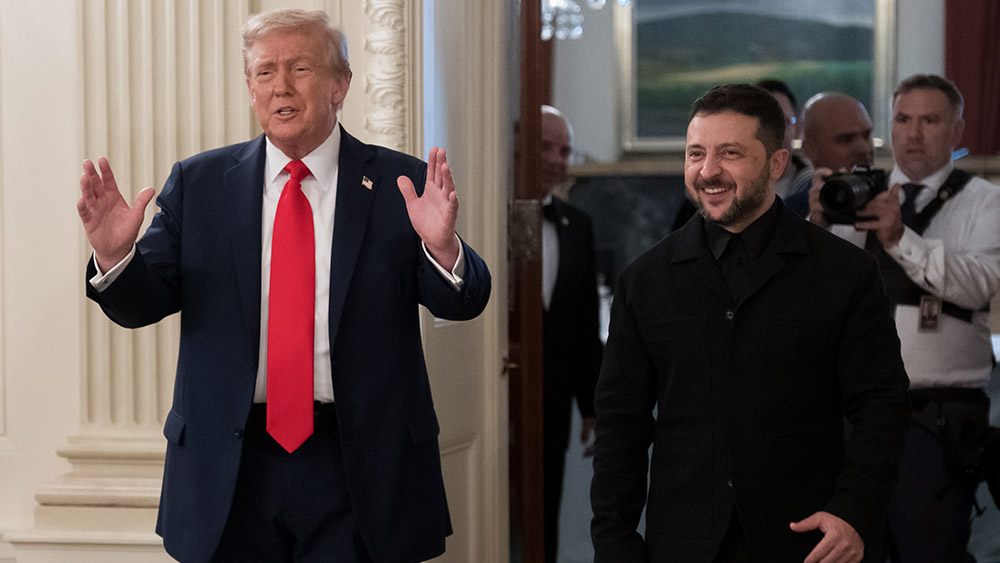Trump denies B-1 bomber deployment near Venezuela, warns of escalating anti-drug operations
10/27/2025 / By Kevin Hughes
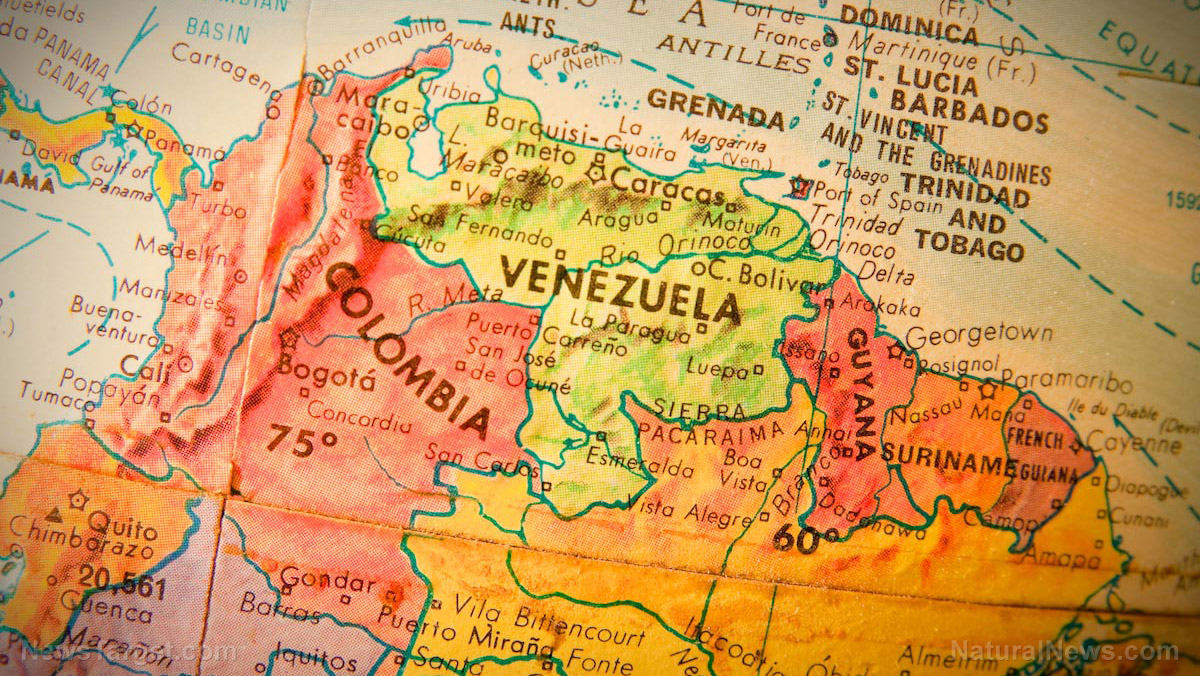
- President Donald Trump denied reports of B-1 Lancer bombers near Venezuela, calling them “false,” but acknowledged displeasure with Venezuela over drug trafficking. Despite the denial, U.S. military operations in the region have intensified, including surveillance and kinetic strikes against suspected drug smugglers.
- The U.S. has conducted multiple lethal strikes against suspected drug traffickers in international waters, killing dozens. Trump hinted at expanding operations to land-based targets, stating, “We’re just going to kill people who are bringing drugs into our country.”
- Venezuelan Defense Minister Vladimir Padrino accused the U.S. of violating international law and warned of CIA covert operations. Venezuela’s Foreign Ministry condemned U.S. actions as a pretext for regime change and vowed to bring the issue to the UN Security Council.
- Colombia urged restraint and adherence to international law. Mexico’s President Claudia Sheinbaum emphasized following legal protocols for interdiction in international waters.
- Trump’s administration appears poised for further military action, possibly without congressional approval. The U.S. continues its aggressive stance, with Defense Secretary Pete Hegseth comparing cartel leaders to Al Qaeda terrorists. Despite official denials, the military buildup suggests Venezuela remains a key target in Washington’s counter-narcotics campaign.
President Donald Trump has firmly denied reports that the U.S. military deployed B-1 Lancer bombers near Venezuela as part of an escalating campaign against drug cartels linked to the Maduro regime. However, he hinted at potential future military action on land while defending recent lethal strikes against suspected narcotics traffickers in international waters.
On Thursday, Oct. 23, Trump dismissed a Wall Street Journal report claiming that two B-1 bombers had flown near Venezuelan airspace following an earlier “attack demonstration” by U.S. warplanes in the region.
“No, it’s not accurate. It’s false,” Trump told reporters at the White House. “But we’re not happy with Venezuela for a lot of reasons, drugs being one of them.”
The Journal had cited U.S. officials and flight-tracking data indicating that the bombers took off from Dyess Air Force Base in Texas and remained in international airspace. The B-1 Lancer, capable of carrying 75,000 pounds of munitions, has been used in both bombing and maritime surveillance roles.
According to BrightU.AI‘s Enoch, the B-1 Lancer is a supersonic, variable-sweep wing, heavy strategic bomber used by the United States Air Force (USAF). It was designed during the Cold War era to replace the B-52 Stratofortress and B-58 Hustler bombers. It is a versatile, long-range strategic bomber that has served the USAF for decades. Its capabilities and role in the U.S. military’s strategic arsenal have been a subject of debate, but it remains an important part of the Air Force’s bomber fleet.
Despite Trump’s denial, the administration has significantly ramped up military operations targeting drug-smuggling networks in the Caribbean and Eastern Pacific.
Expanding naval strikes, possible land action
Since September, U.S. forces have conducted at least nine kinetic strikes against vessels suspected of transporting narcotics, killing 37 individuals. Department of War Secretary Pete Hegseth confirmed the latest attack on Thursday, stating that a strike in the Eastern Pacific killed three suspected traffickers.
“These strikes will continue, day after day,” Hegseth declared on X (formerly Twitter). “These are not simply drug runners—these are narco-terrorists bringing death and destruction to our cities. We will find them and kill them, until the threat to the American people is extinguished.”
Trump suggested that operations could soon expand beyond maritime interdiction. “So now they’re coming in by land,” he said. “And even the land is concerned because I told them, that’s going to be next.”
When asked if the administration would seek congressional approval for expanded military action, Trump replied, “I don’t think we’re going to necessarily ask for a declaration of war. I think we’re just going to kill people who are bringing drugs into our country. Okay? We’re going to kill them.”
Venezuela’s response and CIA operations
Venezuela’s Defense Minister Vladimir Padrino fired back, accusing the U.S. of violating international law. “We know the CIA [Central Intelligence Agency] is present,” Padrino said. “They may deploy, I don’t know how many CIA-affiliated units in covert operations… and any attempt will fail.”
Trump had previously admitted authorizing CIA operations in Venezuela, citing concerns over drug trafficking and the alleged release of prisoners into the U.S.
“They have emptied their prisons into the United States of America,” Trump claimed last week. “They came in through the border. They came in because we had an open border.”
Venezuela’s Foreign Ministry condemned the remarks as a pretext for regime change and vowed to bring the issue before the United Nations Security Council.
International reactions
Colombia, a key U.S. ally in the region, urged restraint, stating: “Colombia calls on the U.S. government to cease these attacks and urges it to respect the rules established by international law.”
Mexican President Claudia Sheinbaum also weighed in, emphasizing adherence to international maritime laws. “There are international laws that dictate how authorities must act in cases of alleged illegal drug or weapons transport in international waters,” she said.
With Trump signaling potential land-based operations and Hegseth vowing to “hunt down” cartel leaders like Al Qaeda, tensions between Washington and Caracas appear set to escalate further.
As the U.S. continues its aggressive interdiction campaign, questions remain over whether Congress will push for oversight—or if the administration will proceed unilaterally in what Trump describes as a “war” against narco-terrorism.
For now, the B-1 bomber reports remain officially denied—but the broader military buildup suggests Venezuela remains squarely in Washington’s crosshairs.
Watch the video below about USAF B-1 bombers caught spraying chemical aerosols over Wyoming.
This video is from the Mike Decker channel on Brighteon.com.
Sources include:
Submit a correction >>
Tagged Under:
B-1 Lancer, caracas, Caribbean, CIA, Claudia Sheinbaum, Colombia, Donald Trump, drug cartels, Eastern Pacific, military tech, military technology, narco-terrorists, Pete Hegseth, Security Council, trafficking, United Nations, Venezuela, Washington
This article may contain statements that reflect the opinion of the author
RECENT NEWS & ARTICLES
COPYRIGHT © 2018 MILITARYTECH.NEWS
All content posted on this site is protected under Free Speech. MilitaryTech.news is not responsible for content written by contributing authors. The information on this site is provided for educational and entertainment purposes only. It is not intended as a substitute for professional advice of any kind. MilitaryTech.news assumes no responsibility for the use or misuse of this material. All trademarks, registered trademarks and service marks mentioned on this site are the property of their respective owners.


